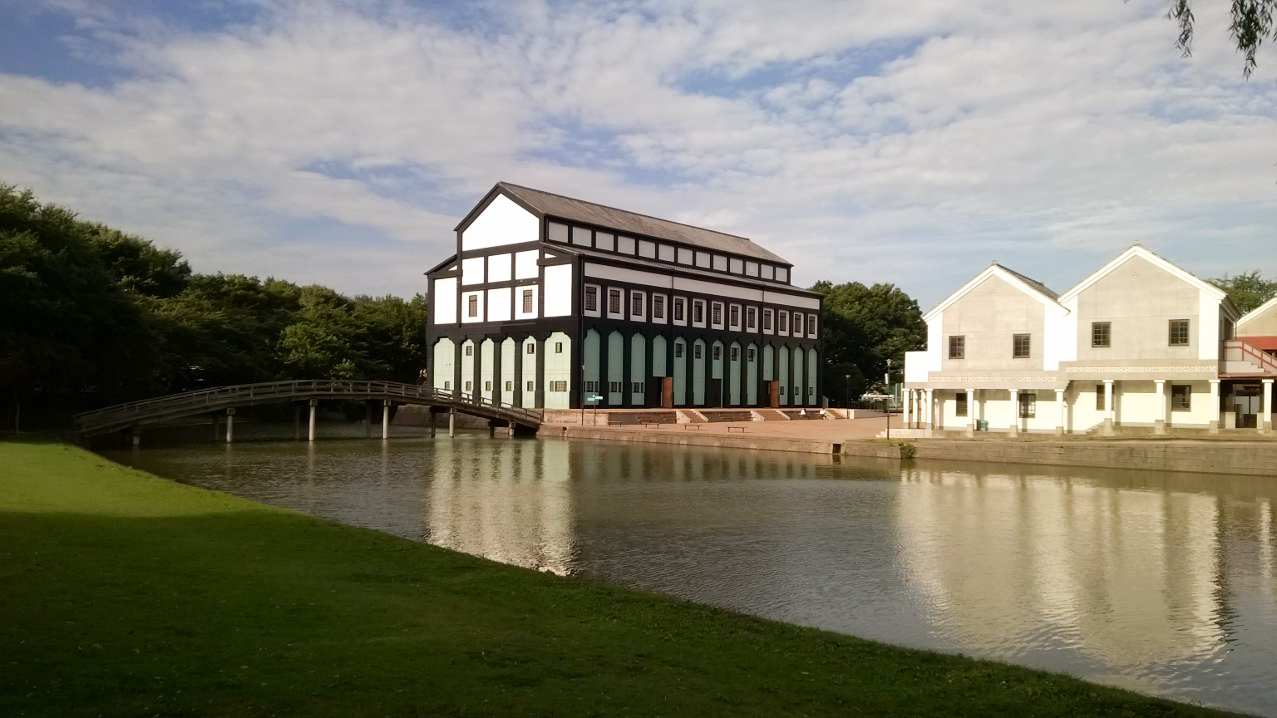Architecture is not simply building. Over 2,000 years ago, Roman architect Marcus Vitruvius Pollio defined two base realities in building: “Firmness” (Safety) and “Commodity” (Use) and then offered what turns building into architecture: “Delight” (Beauty).
“Firmness” has been recoined in this century as “Resilience”. After being unscathed in five hurricanes over thirty years, does this building have “Delight” beyond its “Firmness”? The property of “Commodity” is found in any design’s usefulness and fit: is this archive, in constant use, have “Delight” beyond its “Commodity”?
“Beauty” can be a four-letter word for fine arts sensibilities where judgments are made defensible by learned justifications. But humans experience joy in the world before they can understand, explain, or justify it. So how do you define “Beauty”? Is it consonance with the natural world?
Is “Beauty” spiritual?

Or is “Beauty” created with careful craft?
think “Beauty” is simply experienced. Scientists are seeing that “Beauty” is not a shallow rationalization of how we feel about architecture. A few years ago Richard O. Prum wrote “The Evolution of Beauty: How Darwin’s Forgotten Theory of Mate Choice Shapes the Animal World—And Us.” The book generated articles and reviews because Yale ornithologist Prum declared that our extreme thrill when we see beauty is unnecessary for the survival of the species, but more, it is not learned. Our joy at seeing the beautiful is as natural as eating and sleeping.
The reality of experience cannot be denied. In the previous century, Buckminster Fuller said, “When I’m working on a problem, I never think about its beauty, I just think about how to solve the problem, but when I finish it, if the solution is not beautiful, I know it’s wrong.”

For fifty years architect and scientist Christopher Alexander spent his life defining what is “Good Architecture.” He wrote that “Good Architecture” has an essential truth: “The quality is objective and precise but cannot be named.” His (and many others) pursuit of “Wholeness” in architecture was fully “objective and precise” but in the end came to have the result of “Beauty” without any other definition.
When lifetimes are spent in architecture to an end that “cannot be named”, the acceptance of the fact that we cannot define, let alone control “Beauty” is daunting. Leonardo da Vinci offered a prescription that defies any control by the creator: “Life is pretty simple. You do some stuff. Most Fails. Some works. You do more of what works.” Beyond building, what works to make architecture, is “Beauty.”
Humanity wants to define and control and reproduce success – but if success in making “Good Architecture” is facilitating the uncontrollable responses that are manifest in our genetics, then “Beauty” is out of our control.

The exquisitely subjective reality of our humanity has a universality of truth in architecture. I think finding what is already there within each of us and listening to that essential reality, “without a name”, is the hardest and most natural way to find “Beauty” – and “Beauty” defines “Good Architecture”.
The measure of “Good Architecture” beyond “Firmness” and “Commodity” is found in every human, much to the frustration of those who seek to validate their worth in judgments born of rationalization. As the writer Henry James said, “I don’t care anything about reasons, but I know what I like.”
Source ArchDaily



